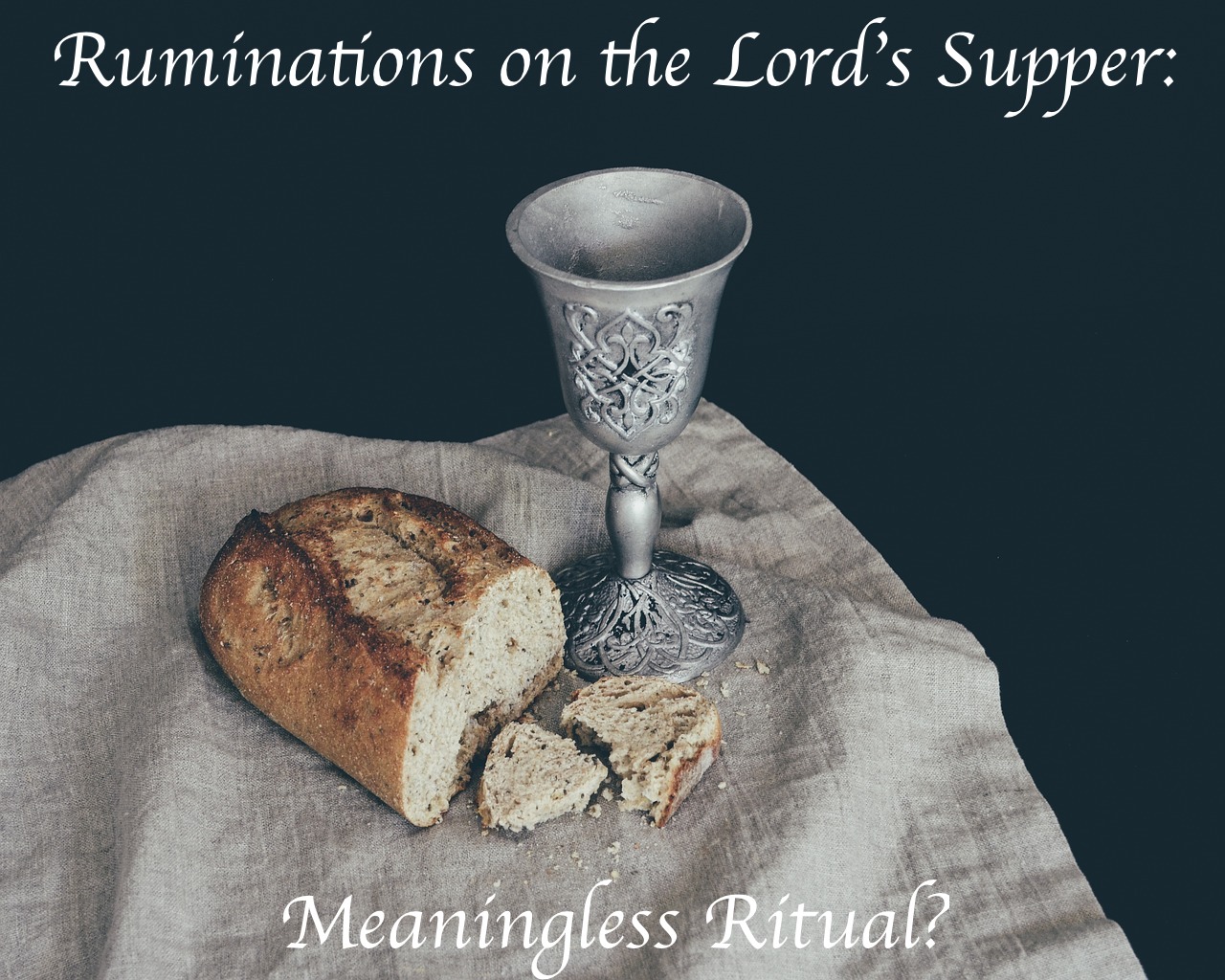We have all witnessed or even participated in what we call “meaningless worship;” people going through rote recitations in a mindless, heartless, and thankless way. They go to worship out of mere habit, trying to keep their parents off their backs, or with some superstitious view that they are keeping God at bay by giving him a little time each week. These people–maybe even we at times–approach worship in general and the Table of the Lord each week without reflection. Wherever we see this we tend to think that their worship is meaningless. But is it?
I understand what we mean when we speak about meaningless worship: worship is meaningless to the worshiper. But whether or not the worshiper reflects upon and responds to the call of God in worship does not invest or divest the worship of its meaning. The meaning of worship rests upon the word of God that establishes the worship. So, when Jesus, instituting the Lord’s Supper, says, “This is my body” and “This is my blood,” every person who eats and drinks at his Table participates in the body and blood of Christ. That is the reality of worship that can’t be changed by the disposition of the worshiper. Ours is to recognize what God has created by his word and conform our lives to it in faith. We attribute to the worshiper too much power if we think that his attitudes and response invest worship with meaning. The ritual meal was created by the word of God. That word is reality. Just as in the beginning when God created the heavens and the earth by the word of his power establishing what is, so in the Supper the Word of God establishes the reality that the bread and wine are his body and blood. He did not say that they become his body and blood depending upon how the person responds. They are his body and blood, and each person who eats and drinks participates in that body and blood.
Participating in the body and blood of Christ in the Supper is a call to respond in faith because, though each and every person who eats and drinks at the Table of the Lord participates in the body and blood of Christ, they do not all participate to the same effect. This is where the response of the worshiper has meaning. Those who come to worship and give homage to God with their lips but with their hearts far from him, they eat and drink to their punishment. As in the church in Corinth whom Paul addressed concerning this issue, Christians cannot murder Christ by dividing up his body through selfishness and hostility, come to his Table, and believe that there will be no negative consequences. That is not eating and drinking in faith. On the other hand, those who love the brethren, who seek to serve others, who confess and repent of their sins, making their relationships right when they have gone wrong, they are coming to the Table in faith and may eat and drink with confident joy. The effect to those who eat without faith is death. The effect to those who eat in faith is life. It is the same Supper for all, but not all receive it to the same end.
So then, whether we engage in mindless and heartless worship or we pour ourselves out in worship, worship has meaning. Jesus has given it meaning by his creative word. Ours is to recognize this reality and conform our lives to it in joyful faith.
Image by Deborah Hudson from Pixabay













